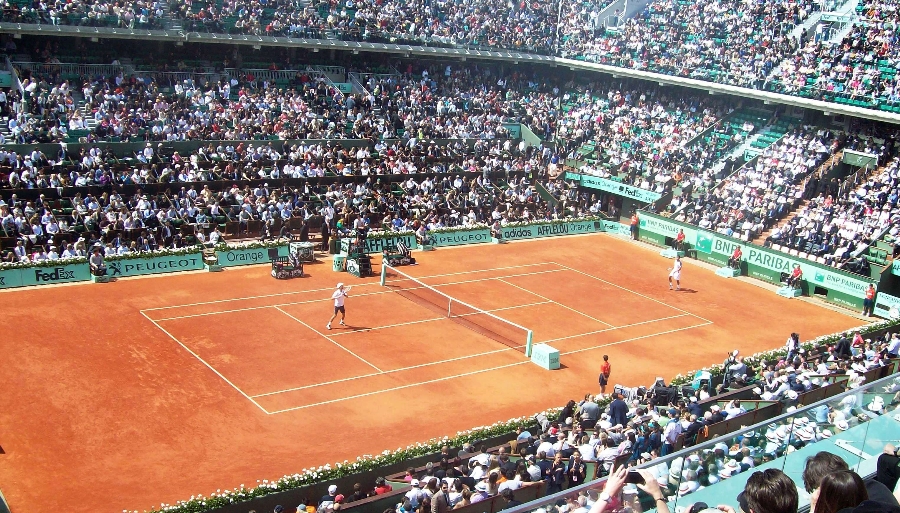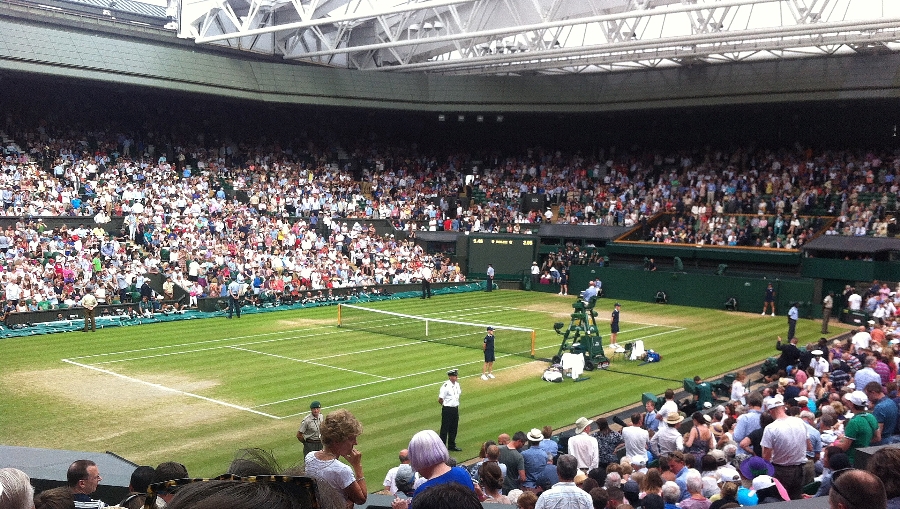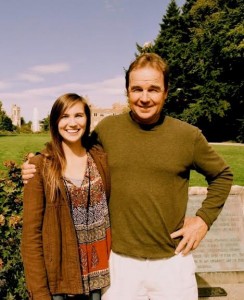There has been no tennis since the break of Coronavirus but you can listen to four podcasts on Tennis with an Accent, with me as a guest with hosts Saqib Al and Matt Zemek, in which we took a retro approach to both Majors. Below are the links and synopses.
Roland Garros Podcasts
1) For Roland Garros, we “time-traveled” back to the Monday after the 1991 men’s tournament (meaning we do not know what the future may bring at that point, ha!) that saw Andre Agassi defeat Jim Courier in the final. We examined that final, along with the important events of the two weeks:
Men’s Tournament – Roland Garros 1991 Time-Travel
2) In our second Roland Garros podcast, the conversation focuses on the type of game that is suited to succeed on the clay of Roland Garros. Saqib and I delve into the evolution of classic styles from a pure baseliner to attacking players. Seles vs Graf battles from the 90’s are used as illustrations on how the playing trends kept evolving even from the baseline. Some iconic finals such as Lendl vs. McEnroe, Evert vs. Navratilova, and Courier vs Bruguera, among others, are covered. A lot of details are packed in this one.
Roland Garros Classic – Game trends, iconic matches, and more

Wimbledon Podcasts
1) 2006 Wimbledon – Time-Travel episode. Once again, Saqib and I beam back to the Monday after the 2006 men’s tournament and look back in detail to the first Federer vs. Nadal final on the grass courts of Wimbledon. We weigh in on the turn-around moments of the match and discuss its importance in the launching of the the rivalry (Nadal came in with a 6-1 lead in the head-to-head count). This also happened to be Andre Agassi’s last championships. We discuss his Wimbledon career in depth and where does he rank with some of the modern greats of the game. Plus, we talk about the potential up-and-comers (at the time) who performed well in the tournaments. Some names will be very familiar with today’s tennis fan.
Men’s Tournament – Wimbledon 2006 Time-Travel
2) I join Matt Zemek to chronicle women’s tennis at Wimbledon from the start of the Open Era in 1968 through the 1990s. Playing styles, surface speeds, racquet technology, and other changes over the course of Wimbledon history are weighed and evaluated in this study of women’s tennis at the All-England Club. The Martina Navratilova-Chris Evert rivalry is a natural centerpiece of this discussion, but don’t forget about Margaret Court versus Billie Jean King in the early 1970s, or Steffi Graf versus multiple challengers in the 1990s, and the 2000s with Venus Williams taking the spotlight. Many players mentioned and notes discussed on the tournament’s evolution.
Wimbledon Women’s Open Era Revisited

Note: The above podcasts and all other Tennis with an Accent podcasts are also available on Apple and Google Podcasts.

